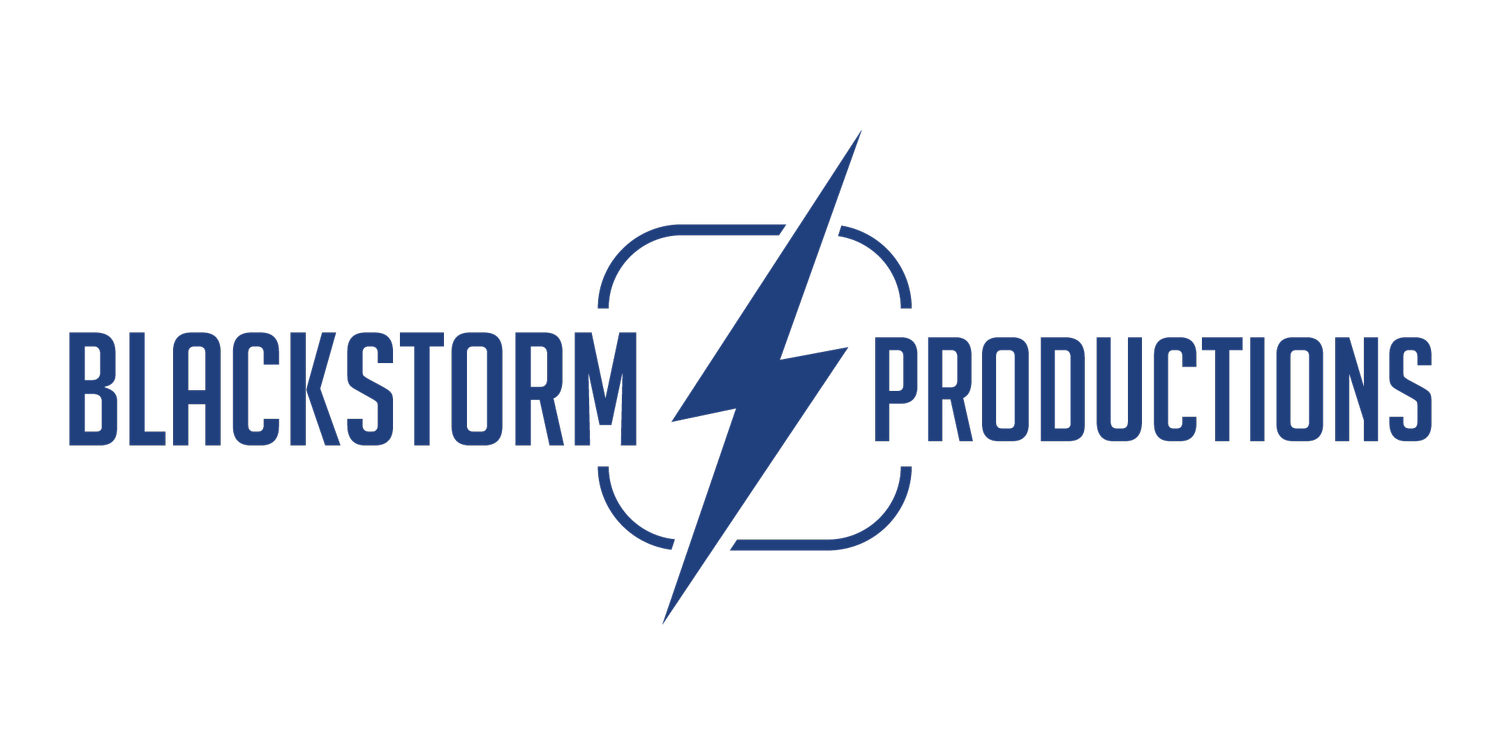Hacked | DON'T GIVE AWAY YOUR PASSWORD
When the lockdown hit, Kelly started working from home but that wasn’t her biggest issue. She was alone, frightened, and hacked! With so many cameras to share our lives, you never know who else could be watching.
It’s 12:30 in the morning on a Monday, and the Hacked crew has finally made it to the final scene of their short. It’s been an exhausting 9-hour shoot, with each of us facing down unique challenges from the comfort of our own homes. And while the shoot is almost over, the challenges are far from it. The last shot requires our two lead actors to appear in the same room. Since Hacked was filmed over the Internet amidst the strict quarantine guidelines, the shot has been rendered impossible to do practically. Putting actors in the same room together wasn’t going to fly with the entire United States on lockdown. An obstacle, but not one that can’t be overcome with a little creativity and a lot of hard work. There’s only one catch; We still have no idea how to do it.
Originally conceived during the height of the Covid-19 lockdown, writer, and director Alex Backstrom saw an opportunity to capitalize on the claustrophobic loneliness that had currently gripped the planet. More importantly, an opportunity to keep diligent and productive. A global pandemic might have starkly limited our ability to shoot but it had not eliminated it, and atop that delicate tightrope, Hacked was born.
I knew from the get-go that Hacked was going to be something of an uphill battle. When Alex first approached me with an early draft of the script he carried a highly unique problem in tow; How do you write a script that takes place solely through a computer screen? How are we supposed to write scene direction that lacks convolution while still maintaining a clear concept of space and movement? After much discussion on the format and look of the script itself, we realized that we were limiting ourselves with such a narrow definition of a “script.” What we came up with was a Frankenstein’s monster of a screenplay. Partly a script and partly a storyboard, our hybrid may not have been what you’d typically expect but it was exceptionally clean. Backstrom’s vision was beginning to come into focus, but the bulk of the work still lay before us.
The script was sent out to producer Brian Caputo, the Co-owner of Blackstorm Productions along with Backstrom. After a round of notes and another draft, Caputo gave the go-ahead to start assembling a team. Cinematographer Blake Horn was brought in, excited to tackle an interesting challenge. All of the lighting and framing would have to be done by the actors from their respective homes. It would take a substantial amount of planning and patience to walk them through such a task. We began meeting regularly over Zoom. Figuring out the technical aspects of such an undertaking took countless hours of problem-solving. What’s the best way to take control of someone's computer remotely? Can we control an external webcam and exposure? For a time, it seemed that every solution came with its own set of questions. Eventually, we landed on solutions we believed would work. But these were still only theories, and to put them into practice, we needed a cast.
Leila Ramirez, a friend and frequent collaborator of Blackstorm Productions, was the first to be cast as Kelly’s girlfriend Sam. As it turned out, Cinematographer Blake Horn’s roommate John Shuta is a standup comedian and was looking to make the jump to acting. Initially, the idea of a comedian playing the tragic “nice guy” seemed unlikely, but in his audition, Shuta was quick to quell that notion. The cast was beginning to fall into place but we still had not cast the lead role, Hacked’s protagonist, Kelly. Kelly is on screen through the entirety of the short, and unfortunately wouldn't be able to benefit from having someone like Blake in the same room the way John would. Anyone who took the role would need to act as their own hair and make-up, camera operator, grip, set decorator, and sound engineer, all while trying to bring life and depth to the character. She needed to be a linchpin. It was undoubtedly the most crucial position to fill and a challenging gambit. Whoever we cast would either be the wind in our sails and carry us along smoothly, or a gentle breeze just strong enough to bring our delicate house of cards toppling down.
To fill the role, Leila pointed us in the direction of Kristen Suarez, who was eager to work and brimming with ambition. We promptly scheduled a Zoom meeting and after hearing her read, were confident we’d found our Kelly. There was only one problem; While Kristen lives in NYC, she like many others had left the city when the pandemic began and was currently in quarantine at her parent’s home in Long Island. One of the interesting aspects of filming during quarantine is the marriage of casting and locations. And while Kristen was perfect for the role, her family's secluded home was at odds with the claustrophobic feeling of being quarantined alone in the city that had inspired Alex to write Hacked in the first place. So now what? Should we rewrite the script to reflect the location? Should we keep casting? We conveyed these concerns to Kristen. Not willing to let a good role slip through her fingers, Kristen took to the first of many tasks that were well outside of her typical job description by offering to brave the pandemic and make the trek back to Brooklyn for the shoot.
We spent the day before the shoot in a virtual dress rehearsal and soon found the complexities on the technical side of the short were much larger than we’d expected. A portion of the script required us to record Kristen from her cell phone. Using Filmic Pro, Kristen had to remain signed into Zoom on both her computer as well as her phone and share her screen so we could see the frame. What we soon discovered was unless the phone was hard-lined into her laptop, The lag was severe. Leaving the phone plugged in would drastically limit Kristen’s range of motion; something we were not willing to part with. We would have to lock down her blocking beforehand and trust she hit her marks until the footage could be exported. Filming from the laptop, however, appeared to be running smoothly. Filming with an external webcam with a built-in light, Blake got to work locking in our look on Eyeglass ES while controlling Kristen’s laptop with a program called Team Viewer. Juggling Kristen’s desktop, as well as his own, was going to be a consistent necessity. We called it a day and set a tentative call time of 3:30. We were confident in what we’d accomplished so decided we could probably be finished shooting by 11:30.
At 5:30 pm and we still hadn’t started shooting. The technical setup has taken almost an hour longer than expected. With the script locked in, I was able to watch from my home as a silent observer, while still trying to soothe the tiny barks of a 10-week-old border collie. The rest of the crew had kicked it up a gear. Problems consistently arose that needed to be dealt with. During John’s scenes, the fans in Blake’s computer began to whir loudly. The workload was beginning to take its toll on his laptop and we feared our audio would pay for it. The lag on Kristen’s phone remained a challenge, but not nearly as challenging as finding the time to charge it any higher than 10%. Time was a commodity we couldn’t afford. We stuck our heels in deep and soldiered on. With technical problems arising consistently and being handled almost as fast as they’d appeared, we’d still fallen behind schedule despite the extensive prep work we’d undergone. A faulty hard drive could have sunk us, had Kristen not offered up one of her own. Our collective preparation and Kristen’s can-do attitude had been keeping us afloat, but we’d finally reached our final scene with only a vague notion of how to pull it off.
Giving off the illusion that our two leads were in the same room wasn’t going to be easy, and all our ideas were theoretical. Could we sell it with voiceover and camera work designed specifically to avoid showing a second body? It could work but would take intense choreography we’d have to do on the fly. The con of doing this way was simple; not showing the film’s antagonist might undercut the terror of what we were going for. We discussed our options for a while before I noticed a shimmer in Backstrom’s pensive gaze I had seen many times before. I could tell he had an idea. More importantly, I could tell he liked it.
We had Blake shoot himself standing in for Finn on his phone and Alex slapped together a rough composite that brought John and Kristen into the same room. It was exactly what we needed, and our day had finally come to rest. For Alex however, the work was far from over. He quickly learned in order to give off the impression of watching the short through Finn’s computer, he would have to edit the entirety of the short in After Effect. While we had endured a 9-hour shoot, Backstrom had over 100 hours of obsessing over minute details and animations while attempting to maintain continuity and sell the effect before sending it off to sound.
The Covid-19 pandemic was a blow to all of us working in the entertainment industry. With production at a complete standstill, our futures looked as though they’d been put on hold for the foreseeable future but being back on a virtual set brought excitement back into the crew. Hacked may be a grim take on the collective fear we’ve all experienced being prisoners in our own homes over the last 5 months, the narrative behind the scenes remains a hopeful one. Rather than succumbing to that fear, we faced it with ingenuity and optimism. While a national pandemic may have limited our ability to shoot, the one thing the pandemic couldn’t take away was the determination of a handful of talented young creatives.





